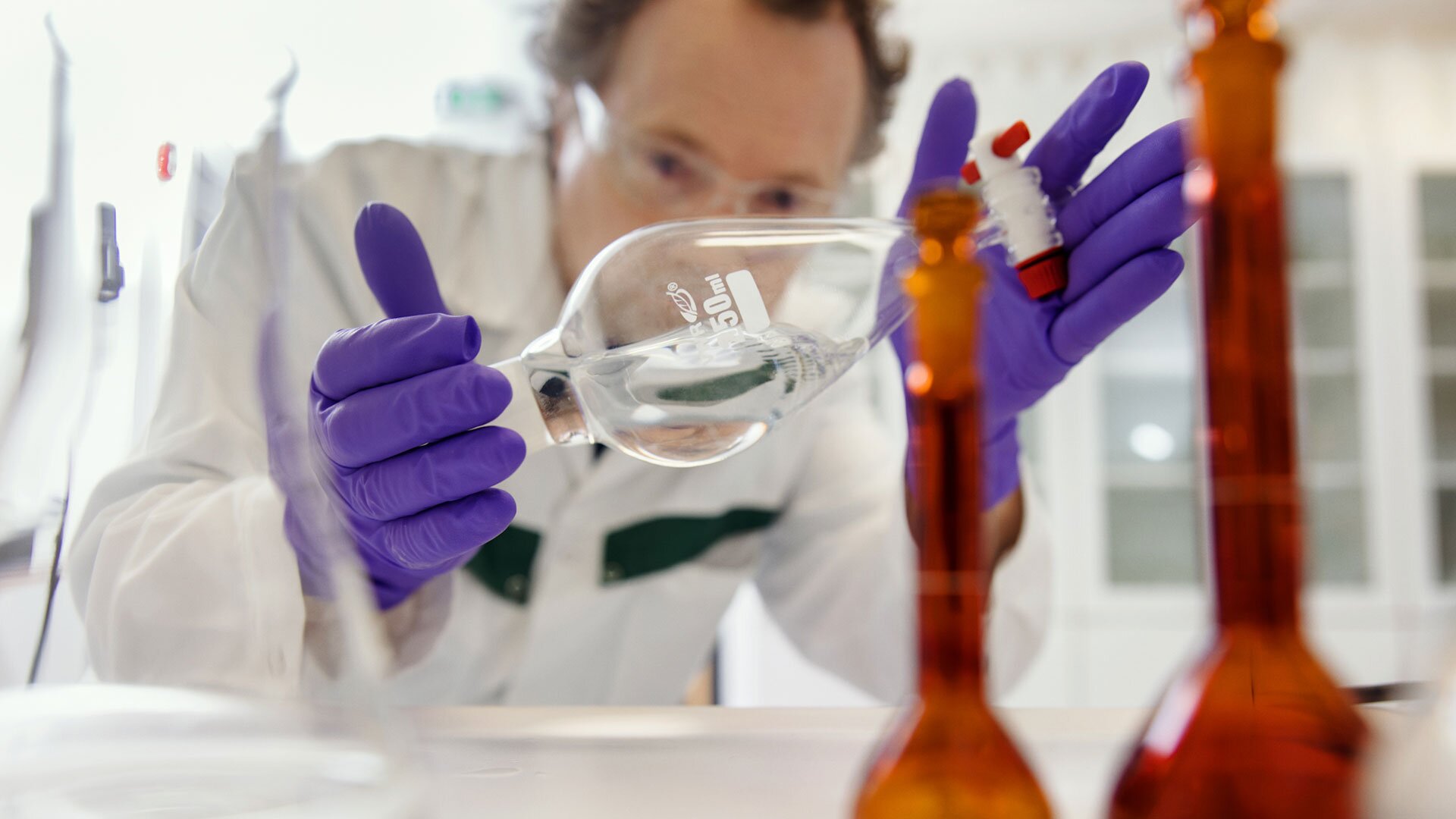Heikki Mansikka worked as a physician for many years and repeatedly encountered what it is like to live with pain.
“The situations were bleak. In my work, I saw patients suffering from acute pain, such as those recovering from surgery, and patients struggling with chronic pain that doctors had been unable to relieve. Pain has an all-encompassing impact on patients’ functioning, ability to work, quality of life and mental health,” says Mansikka.
Heikki Mansikka, Vice President, Pain Therapy Area, now leads the Pain Business Unit within Orion’s R&D. The unit was established in May 2022. Orion has been researching pain and neurological diseases for decades, but at that point a decision was made to focus on non-addictive medication for acute and chronic pain.
“There have been no new drug-based treatments for pain management for decades, even though there is a huge need for them: globally, as many as one in five people suffers from chronic pain. Pain is also the most common reason to seek help from a healthcare professional,” says Mansikka.
Non-addictive pain medication
Orion’s Pain Business Unit is made up of around twenty neurobiology professionals and researchers ranging from biologists to experts in neurophysiology and neuropharmacology and physicians. They include people with master’s degrees and doctoral graduates with extensive expertise in pain management.
“The team is identifying interesting target proteins that can be influenced to treat pain. The target proteins and the regulation of these are validated through various studies,” says Mansikka, summarising the team’s work.
There are two main lines of research: affecting pain signals in pain-sensing nerves and affecting the interaction between the immune defence system and the nervous system.
“The aim of both lines is to alleviate the pain signal, which will also reduce the sensation of pain in the brain,” explains Mansikka.

If our molecule is successful in the trials, the result will be an entirely new class of pain medicine that will change the field of pain management making it significantly better for patients.”
A blocker of the Nav1.8 sodium channel has made the most progress in the research and has currently advanced to the clinical trial stage. The molecule mainly affects the peripheral nervous system and only has a slight effect on the central nervous system. Thus, it is possible that the active ingredient will not affect the pleasure centre of the brain, which means it will not be addictive.
“If our molecule is successful in the trials, the result will be an entirely new class of pain medicine that will change the field of pain management making it significantly better for patients.”
Opioid crisis puts pressure on research
Globally, the need for new, innovative drug-based treatments is also being driven by the opioid crisis, which is particularly severe in the US and is estimated to result in over 100,000 deaths every year.
The misuse of opioids has resulted in a widespread public health problem, which is associated with the abuse of the drug, development of an addiction and an increase in opioid-related deaths.
“Our aim is to develop new drug-based treatments for both acute and chronic pain that are effective, safe and non-addictive. Our long-term goal is to reduce the use of opioids in pain management,” says Mansikka.
Huge need for outcome of the team’s work
Given the fact that there is high demand for effective pain medication to replace opioids, competition is also fierce. A lot of hard work is being carried out in the Pain Business Unit both by the Finnish research team and, since the end of last year, also in the United States.
“We set up the US R&D Hub clinical development unit in New York in November. In addition to our desire to become known as a global expert in pain therapy, we want to establish relationships early on with local players in the United States,” explains Mansikka.
Orion’s aim is to grow a portfolio of pain medication, which is based on the Nav1.8 blocker that is currently in the clinical trial phase, and to expand in the future into other drug development candidates that are currently still in the R&D pipeline.
“We are constantly assessing promising research phase molecules and discussing collaboration opportunities with biotech companies around the world,” says Mansikka.
Heikki Mansikka feels that every decision – even the smallest one – made by the team is meaningful in the process of developing a new medicine that will help people suffering from pain.
“Developing a new, innovative medicine is enormously difficult, and there are many things that can go wrong. But every trial and problem solved matter: they drive the process forward. There is a huge need for the outcome of our work,” says Mansikka.
Camilla Steinby, what makes your work in the Pain Business Unit feel meaningful?
“Over a longer period, pain is debilitating and forces you to adapt: you can’t do what you want, only what you are able to do. Pain affects ability to work and isolates people from society.
“For me, working in pain management and pain research is particularly meaningful precisely because here, if anywhere, the patient is most important. We have a huge potential to make a difference to the quality of life of millions of people globally.
“The fact that I can be a pioneer and be involved in changing the treatment of pain and introducing safe treatments to people is a great motivator. And the desire to do more only grows as we make progress.”
Camilla Steinby, Head of Global Pain Business Unit
The three best things about Orion – according to the Pain Business Unit team:
- Meaningful work: There has been no real innovation in pain management for decades, but now we are on the verge of a breakthrough regarding Nav 1.8 blockers. This could make a significant difference to the lives of patients suffering with pain already in the near future.
- International work: We are at an exciting stage in the Pain Business Unit as we are expanding to the United States and our operations are becoming global. It is inspiring to be part of the internationalisation process.
- Work community: A pleasant team working together for a common goal that engages in good scientific discussion a daily basis. If you are interested in science and work that benefits patients, join our team!

The fact that I can be a pioneer and be involved in changing the treatment of pain and introducing safe treatments to people is a great motivator. And the desire to do more only grows as we make progress.”








